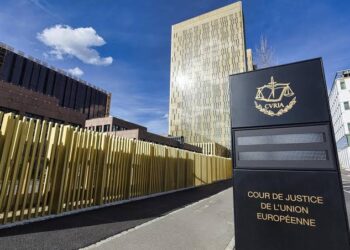INTRODUCTION
The distinction between a ground of law and one of mixed law and fact is a slim one though elastic, and the court in plethora of cases have laid down the parameters to be considered before a conclusion is drawn as to whether a ground is of law or mixed law and fact. The Court through its pronouncements has equally bestow upon the courts the duty to determine such distinctions when the need arise.
The above is made manifest in the dictum of the court in the case of Falana v. Bello (1995) 9 NWLR (pt.418) 182 at 189-190, Nigerian National Supply Co. Ltd. v. Establishment Sima of Vaduz (1990) 7 NWLR (pt.164) 526 at 548 where the court stated that it is the duty of the court to critically examine the ground of appeal and ascertain whether it is a ground of law, mixed law and fact or of fact. See also F.B.N. Pic v. T.S.A. Industries Ltd (2010) 15 NWLR (Pt. 1216) 247, Lababedi v. Majekodunmi (2018) 5 NWLR (Pt. 1612) 369.
In Ailara v. Garuba (1995) 6 NWLR (Pt.402) 490 @ 502, it was also explained that what constitutes a ground of law or of mixed law and facts or of fact only has been the subject of judicial decisions by the Supreme Court in a number of cases notably, in the recent time, Ogbechie v. Onochie (1986) 2 NWLR (Pt.23) 484, Nwadike v. Ibekwe (1987) 4 NWLR (PT. 67) 718 and Ifediorah v. Ume (1998) 2 NWLR (PT.74) 5.
The following are the most prevalent distinctions as elucidated by judicial precedents:
- Where a ground of appeal raises or involves questions of mixed law and facts, the leave of court is required to argue it. The appellant ought to obtain the necessary leave and failure to do so made the ground incompetent and liable to being struck out as espoused in the case of Popoola v. Adeyemo (1992) 8 NWLR and Section 233 of the 1999 constitution (as amended. On the other hand, for an appeal on a ground of law, no leave of court is necessary as it is as of right. Per Ejiwumi J.C.A. in Ideh v. Godless motors, it was held that where grounds of appeal filed by the appellant involves questions of law alone, no leave is necessary.
- In Uwakv Ekpenyong (2019) 7 NWLR, it was held that a ground of appeal would qualify as one of law where it is evident that the lower court misunderstood the law or misapplied the law to the facts that are already proved or admitted. The ground would qualify as a ground of law. On the other hand, in the case of Ogbechie v. Onochie (1986) 2 NWLR (Pt.23) 484, it was held that if the ground of appeal complains of the manner in which the lower court evaluated the facts before applying the law, the ground would be mixed law and facts.
- In the case of Ogbechie v. Onochie (1986) 2 NWLR (Pt.23) 484, where the lower Court finds that particular events occurred although there is no admissible evidence before the Court that the events did in fact occur, this is question of law. While, a ground of appeal which questions the evaluation of facts before the application of the law, is a ground of mixed law and facts. This was also espoused in Parv. Shittu (2018) 15 NWLR (Pt.1642) 195.
- In the case of Ogbechie v. Onochie (supra), it was held that if the tribunal errs in its conclusion (that is, in applying the law to the facts) in a case where this process requires the skill of a trained lawyer, it is a question of law. Where the Court is being invited to investigate the existence or otherwise of certain facts upon which the award of damages to the Respondent was based, such a ground of appeal is a ground of mixed law and fact as espoused in the case of Maigoro v. Garba (1999) 10 NWLR (Pt. 624) 555 and Pan v. Shittu (2018) 15 NWLR (Pt.1642) 195.
- Where the lower Court or tribunal though correctly treating a statutory word as a phrase or a legal term and it errs in elucidating the word or phrase, it is a question of law. Where the evaluation of facts established by the trial Court before the Law in respect thereof is applied, is under attack or question, the ground of appeal is one of mixed Law and fact. This was held in the case of Maigoro v. Garba (supra), Hajiya Aisha Buhari v. Alhaji Mansur Modi Yabo (2018) 9 NWLR Pt. (1624) 167 at Pp.207-208.
- In APGA v. Oye (2018) LPELR-45196 SC, it was held that where a Trial Court reached a conclusion which cannot reasonably be drawn from the facts as found, the appeal Court will assume that there has been a misconception of law and this is a ground of law. In the case of Harrison Welli & anor v. Ogechukwu & ors (1985) 2 NWLR (PT.5) 63, the explanation was made as to the meaning of a ground of appeal with mixed law and facts.
It was explained as where one of the particulars of a ground discusses questions of mixed law and facts, the ground of appeal cannot be said to raise the issue of law alone. This implies that how a ground of appeal is christened does not matter but rather what it explains as stated by Mohammed J.S.C in Ailara v. Garuba (1995) 6 NWLR (Pt.402).
In the case of Harrison Welli v. Ogechukwu, (supra), the grounds of appeal in the Notice of Appeal were held to be incompetent in that they raised issues of mixed law and facts although they were christened as grounds of law. When grounds of appeal allege misdirection or error in law, the nature and particulars of the misdirection or error should be clearly stated.
If there are any particulars at all mixed up with the errors in law alleged, the allegation is therefore to be separated from the particulars. In this case, the appellants sought two grounds of law in its appeal but the Court held Per Uwais J.S.C.;
“Examining the grounds of appeal, the particulars thereof seem to be that the Court of Appeal did not consider “why in law the remaining issues set out by the appellants…were joined or if joined why they did not have to be resolved by the learned trial judge.” The joinder of issues is a question of law based on pleadings which in turn are based on allegation of facts. For a court to determine the joinder of issues, like a plea of res judicata, it will have to deal necessarily with or fall back on facts. This therefore renders the first ground of appeal as raising questions of mixed law and fact. It cannot rightly be said that it is raises question of law alone.
With regards to the second ground of appeal it seems to me that the particulars thereof fall under two heads. The first relates to the failure of the trial judge to set out the issues joined between the parties and to make specific findings on them. The second raises the point that the Court of Appeal failed to consider the submission of the appellants by the counsel, that the survey plan tendered by the appellants (exhibit 2) shows the appellants’ tenant on the northern boundary, the earth mound and Ikpo trees. The first head may well be considered as raising a point of law alone, but the second head clearly deals with the reading of a plan and that is, undoubtedly, a question of fact. Now both heads were treated under the same ground of appeal. In determining whether the ground raises question of law alone or question of mixed law and fact, we cannot overlook the second head. It follows therefore, that the second ground of appeal encompasses issues of mixed law and fact. In my opinion each of the two grounds of appeal raises questions of mixed law and fact..”
This was also adopted and referenced to in examining the grounds of appeal in the case of Ojemen & Ors v Momodu II & Ors (1983) 14 NSCC 135 t p.146; (1983) 3 S.C. 173 @ p.208.
- Where the Court of Appeal interferes in such a case and there is a further appeal to a higher Court of Appeal on the application of the facts, the grounds of appeal alleging such misdirection by the lower Court of Appeal is a ground of law. This notion was also held in APGA v. Oye (supra). It has been held that where the point raised in the appeal boarders on the issue of fact in an affidavit or counter affidavit, failure to consider such point will therefore be an issue of mixed law and fact. The learned Justice of the Supreme Court per Uwais J.S.C in his opinion in N.N.S.C v E.S.V. (1990) 7 NWLR (pt. 164) 526 at 543-544 stated thus
“Where the point raised concerns an issue of fact, like an averment in an affidavit or counter-affidavit, it is in my opinion, that the failure to consider the point will in that case become entangled with the averment and will therefore be an issue of mixed law and fact. See Harrison Welli & anor v Ogechukwu & ors (1985) 2 NWLR (PT.5) 63 and Ogbechie’s case (supra) at p.491 E-G.”
- It is a ground of law if the adjudicating Tribunal or Court took into account some wrong criteria in reaching its conclusion or applied some wrong standard of proof or, if although in applying the correct criteria, it gave wrong weight to one or more of the relevant factors. This was held in the case of 0’Kelly v. Trusthouse Forte P.I.C. (1983) 2AIl ER 456 at 486. However, where a ground of appeal which complains that the decision of the trial Court is against evidence or weight of evidence or contains unresolved contradictions in the evidence of witnesses, is ground of mixed law and fact as held in the case of Ogbechie v. Onochie (supra).
- Where it is alleged that there was no evidence or no admissible evidence upon which a finding or decision was based, this is regarded as a ground of law. See Ogbechie v. Onochie (supra) where Eso, J.S.C, citing an article by C. T. Emery in Vol. 100 LQR held:
“If the Tribunal purports to find that a particular event occurred although it is seized of no admissible evidence that the event did in fact occur, it is question of law.”
- In Kaine v Ojukwy (2000) FWLR, it was held that where the ground of appeal is based on a complaint of errors emanating from a conclusion on undisputed facts, the ground is a ground of law. On the other hand, in making a distinction between ground of law as opposed to ground of mixed law and facts, the court held that if the errors complained of are founded on disputed facts and by the complaint the correctness of the ascertained facts is being challenged, the ground is one of mixed law and facts. Invariably, where the trial court is asked of exercise of its discretion and the appellant’s complaint as contained in his ground of appeal relates to the exercise of the court’s discretionary powers, the ground would be adjudged one of mixed law and fact.
However, in reviewing the observation of Suprene Cout in Pan v. Shittu (supra), the state of
affairs with regards to the jurisdiction of the Supreme Court has been altered by the Constitution of the Federal Republic of Nigeria (Second Alteration) Act, 2010. By Section 6 of the Constitution of the Federal Republic of Nigeria (Second Alteration) Act, 2010, the whole of Section 233 of the Constitution has been “substituted“.
The new Section 233 provides as follows:
- 233 (1) The Supreme Court shall have jurisdiction, to the exclusion of any other court of law in Nigeria, to hear and determine appeals from the Court of Appeal
- 233 (2) An appeal shall lie from the decisions of the Court of Appeal to the Supreme Court as of right in the following cases-
- where the ground of appeal involves questions of law alone, decisions in any civil or criminal proceedings before the Court of Appeal;
- decisions in any civil or criminal proceedings on questions as to the interpretation or application of this constitution;
- decisions in any civil or criminal proceedings on questions as to whether any of the provisions of Chapter IV of this Constitution has been being or is likely to be, contravened in relation to any person;
- decisions in any criminal proceedings in which any person has been sentenced to death by the Court of Appeal or in which the Court of Appeal has affirmed a sentence of death imposed by any other court;
- decisions on any question-
- whether any person has been validly elected to the office of President or Vice-President under this Constitution,
- whether the term of office of President or Vice-President has ceased
- whether the office of President or Vice President has become vacant
- whether any person has been validly elected to the office of Governor or Deputy Governor under this Constitution,
- whether the term of office of a Governor or Deputy Governor has ceased,
- whether the office of Governor or Deputy Governor has become vacant; and
- such other cases as may be prescribed by an Act of the National Assembly.
From the above, it is expressly clear that by the Second Alteration of the 1999 Constitution of the Federal Republic of Nigeria, the passage way by virtue of Secion 233(3) to an aggrieved party whose grounds of appeal involve facts or mixed law and facts, is closed. The Supreme Court’s powers in Section 233(3) to grant leave to appeal has been taken away.
This is what led to the observation of the court in the above case as highlighted that the Supreme Court no longer has jurisdiction to hear appeals where the grounds of appeal involve questions of mixed law and facts and that appeals on grounds of mixed law and facts end at the Court of Appeal.
Section 233(2) (a) of the Constitution expressly confers a right of appeal as of right to Supreme Court where the ground of appeal involves questions of law alone from decisions in any civil or criminal proceedings before the Court of Appeal. However, other matters for which an appeal may lie as of right to the Supreme Court in subsequent paragraphs have the possibility of their grounds being not just on the law but also on facts or mixed law and facts.
In the view of Babatunde Ogungbamila, a Partner in Olisa Agbakoba Legal, his opinion elaborates the ambit of this provision in considering Section 233(2) “C” as an example. Paragraph C states that “..An appeal shall lies from the decisions of the Court of Appeal to the Supreme Court as of right in the following cases: “Decisions in any civil or criminal proceedings on questions as to whether any of the provisions of Chapter IV of this Constitution has been, is being or is likely to be, contravened in relation to any person”.
To him in such instance, it is possible for a ground of appeal to be on mixed law and facts or facts in relation to a decision of the Court of Appeal in any civil or criminal proceedings on questions as to whether any of the provisions of Chapter IV of this Constitution has been, is being or is likely to be, contravened in relation to any person. If this is so, he posits that, can the Supreme Court decline jurisdiction on the basis that Section 233(3) has been deleted? The answer is in the negative.
This applies to the other matters contained under section 233 (2) of the Constitution. His submission was that while the observation of the Supreme Court is apt in relation to the provisions of Section 233, it appears incorrect, with respect, to the extent that the Supreme Court no longer has jurisdiction to hear appeals where the ground of appeal involves questions of mixed law and fact.
It also appears incorrect to the extent that appeals on grounds of mixed law and facts end at the Court of Appeal. This is because, in some instances, the Supreme Court can still entertain an appeal on questions of mixed law and facts or facts in limited instances as demonstrated above.



















